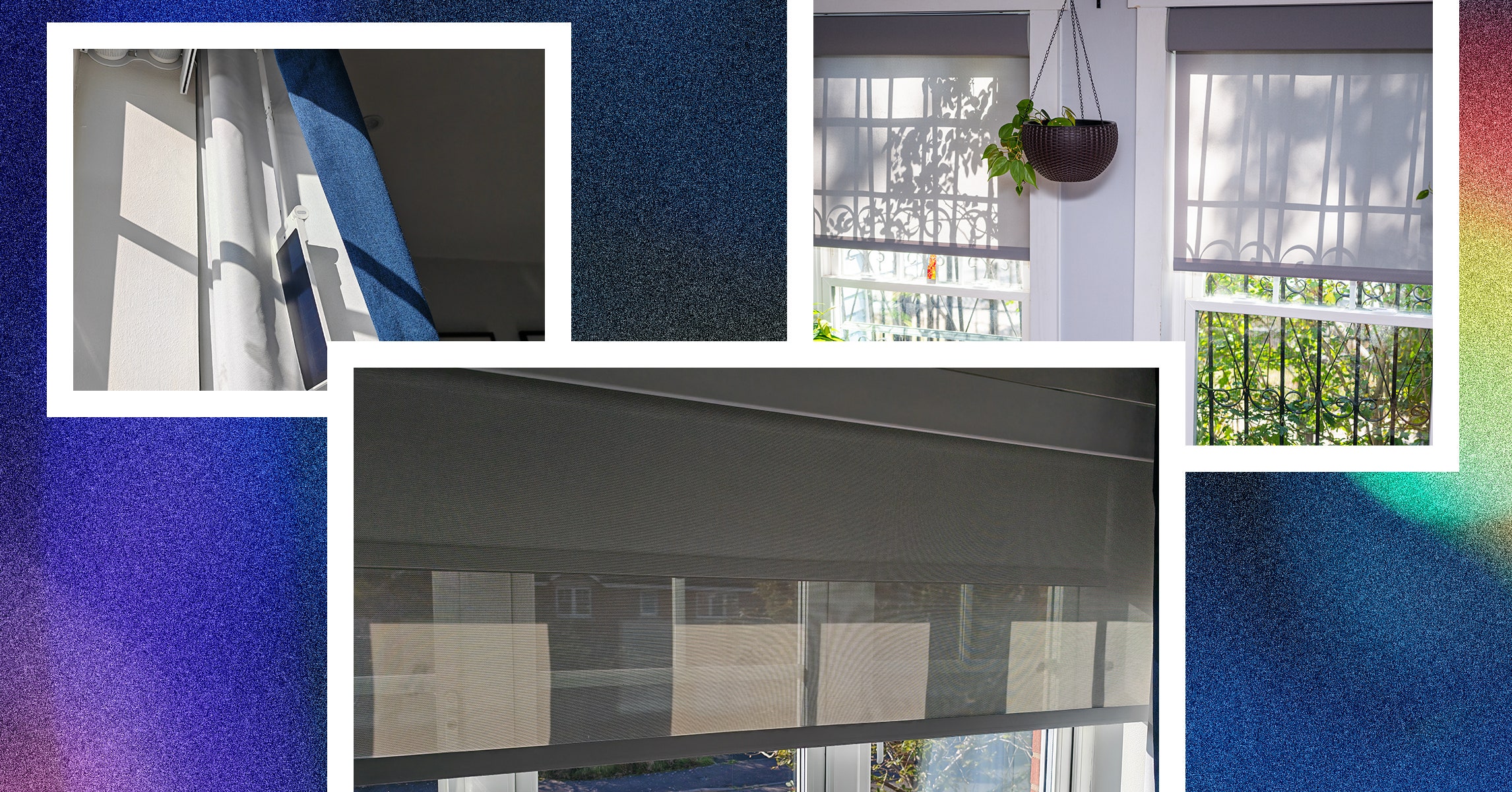Set it and forget it. That’s what it has been like living with Lutron’s Serena Shades for the past year, and it’s exactly what I want out of a gadget like this. Lutron’s website might look a bit dated, but you can run through a series of choices as you design your custom shades (in Honeycomb, Wood Blinds, or Roller designs). I chose the latter and entered the measurements from the inside mount of my windows in Lutron’s shade builder tool. You can choose between battery-powered and wired, but because I don’t have outlets near my windows and I didn’t want to deal with a 15-foot cord, I opted for the batteries (eight D-cell alkaline batteries). Good news on that front: These batteries should last three to five years if you open and close the shades twice per day! Once the batteries start to get low, the shades will move at half speed, indicating it’s time to swap them (you will also get an alert in the Lutron app).
Some of the following options in the design process may differ if you went with a different shade style, but you can mount these shades on the inside or outside mount of your windows, and even above the frame if you want (I did an inside mount). Then, choose the kind of headrail you want. I went with the fabric-wrapped Fascia, which will cost a bit more, but it looks cleaner than the standard roll design. Lutron also lets you choose between sheer, translucent, or blackout for the roller shade, and I went with translucent. It can let very little light in on sunny days, and night, looking from the outside, I can just see a faint glow from my living room lights. I couldn’t see any silhouettes! Finally, choose your fabric weave and color (I did Luna <1% Collection in basalt gray).
During the order process, you will also need to choose how you want to control your shades. I wanted to use my phone and voice assistant but also have the option for a remote, so went for the Remote & Connected Home option. Make sure you snag the Lutron Smart Hub, which you will need to plug into your router to pair your shades to your Wi-Fi connection. It was pretty easy to set it all up and connect to Google Assistant in the Google Home app (you can set them up with Amazon Alexa, Apple HomeKit, Samsung SmartThings, and even other brands like Sonos, Ecobee, and Honeywell).
The installation itself took no more than an hour (hopefully you’re comfortable with drills and mounting things), and it truly has been smooth sailing since. I set up a schedule for the shades to open and close 30 minutes after sunrise and sunset, and they’ve been doing exactly that for close to a year. They are almost silent. You hear a very slight whirr, but honestly, if I didn’t see them move and I wasn’t paying attention and the TV was on, I would never hear them at all. They look great, work flawlessly, and I don’t have to worry about battery life for years. They’re spendy, but you’re paying for peace of mind. —Julian Chokkattu

